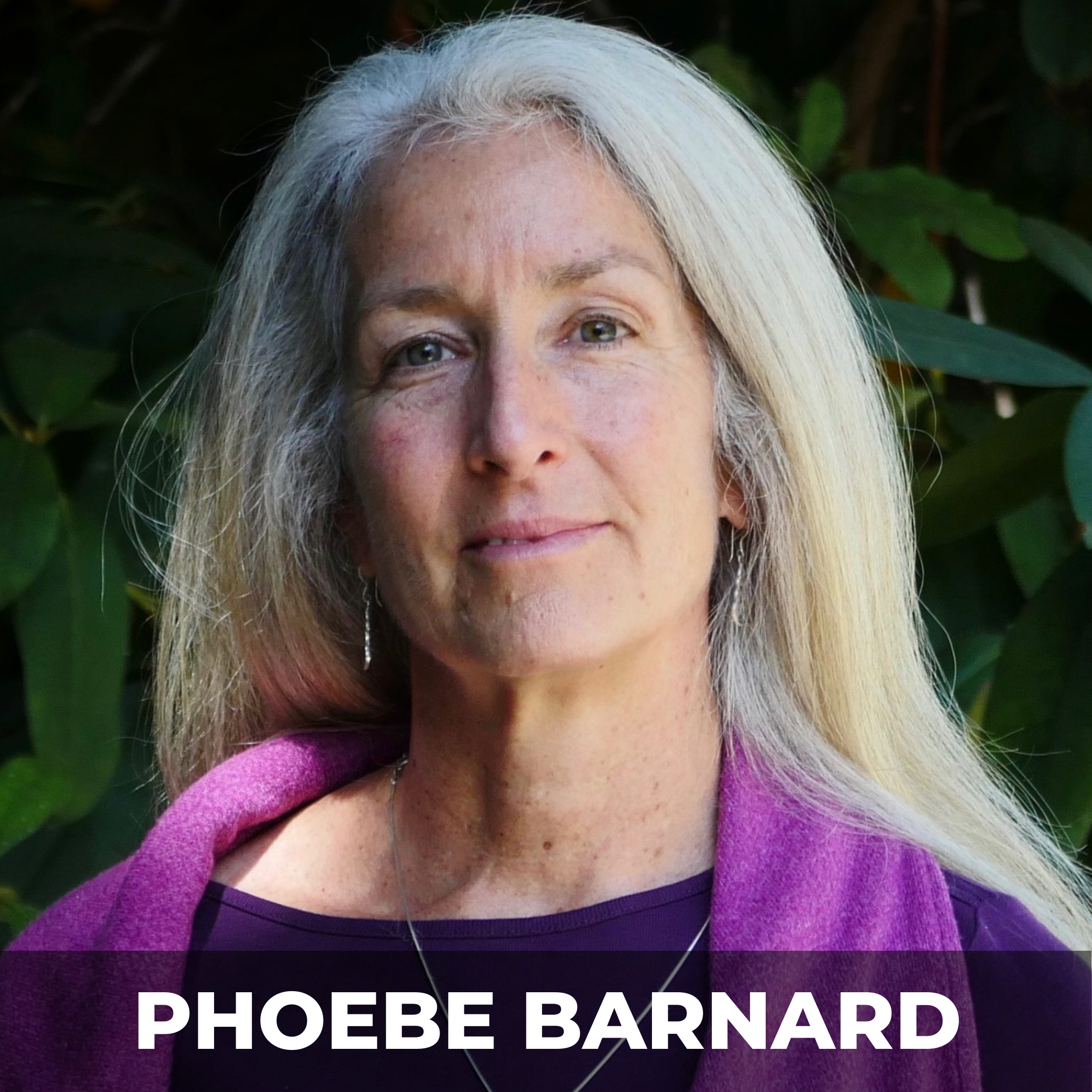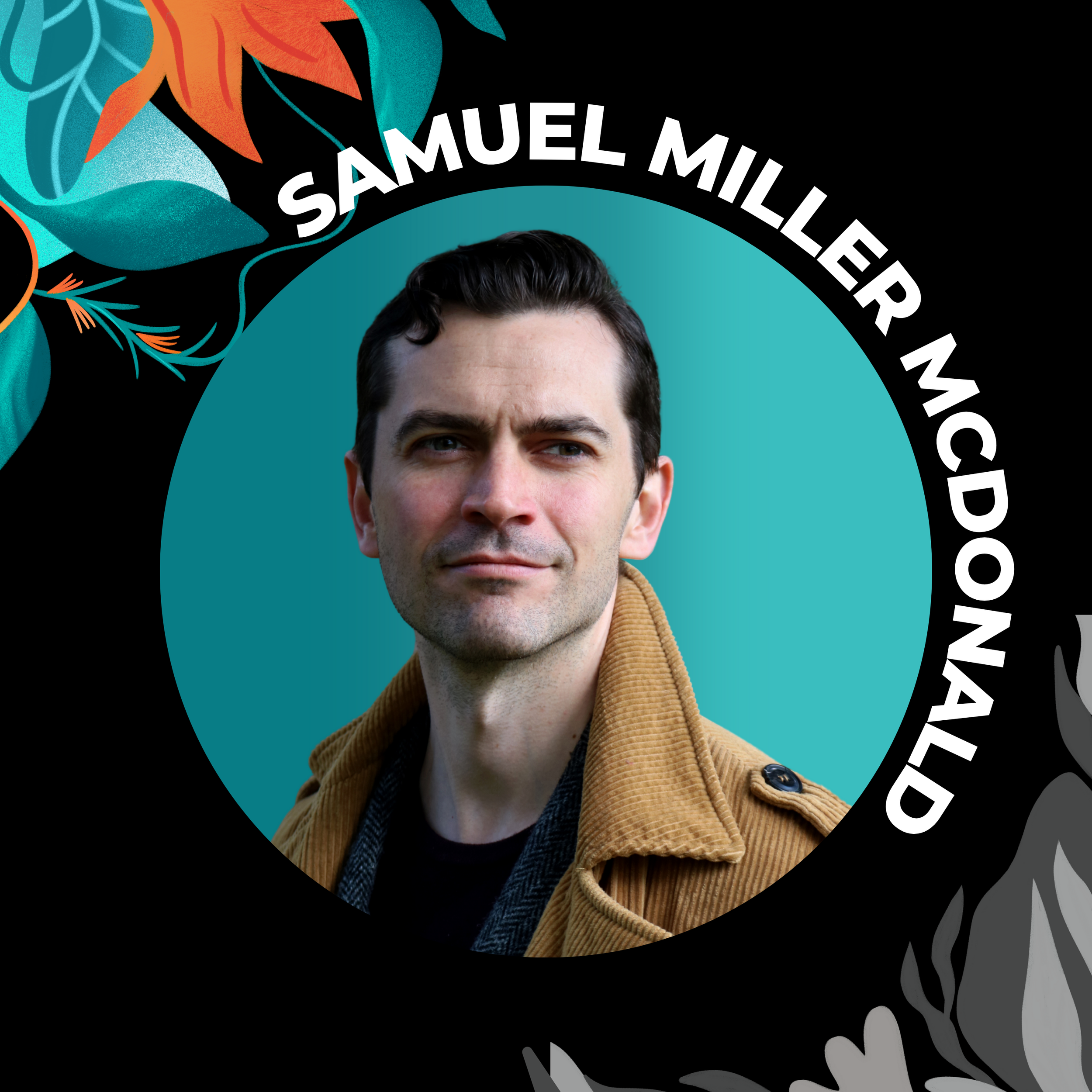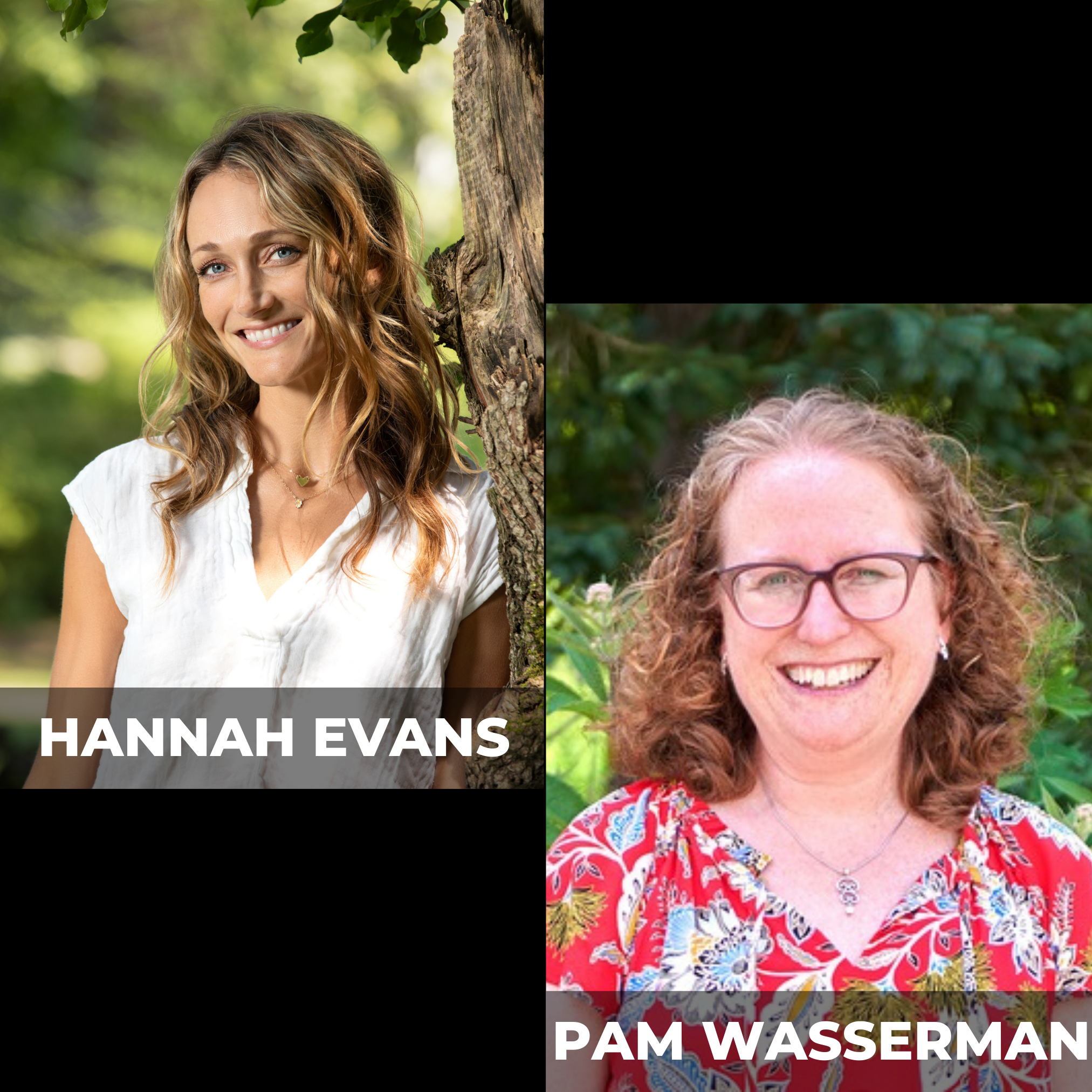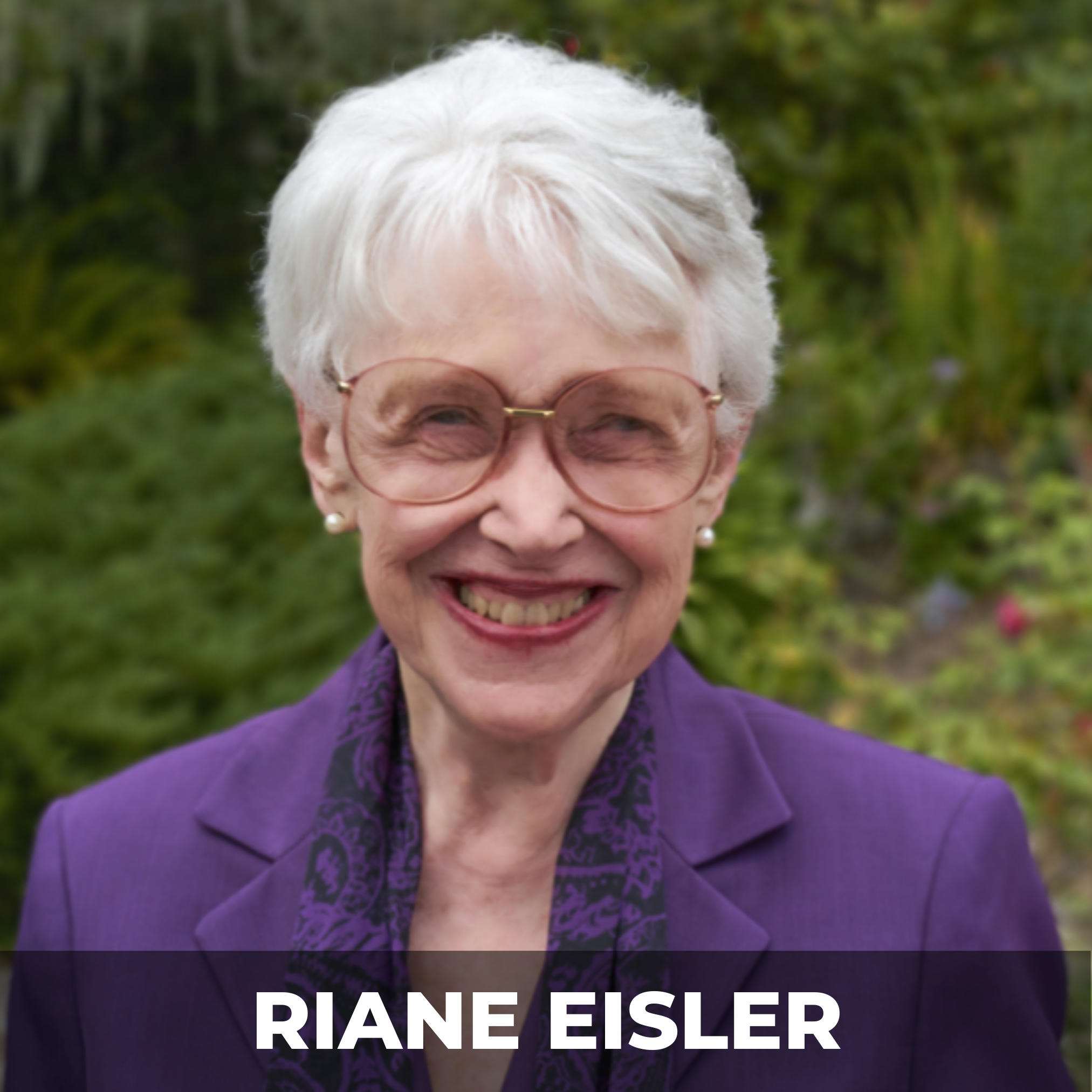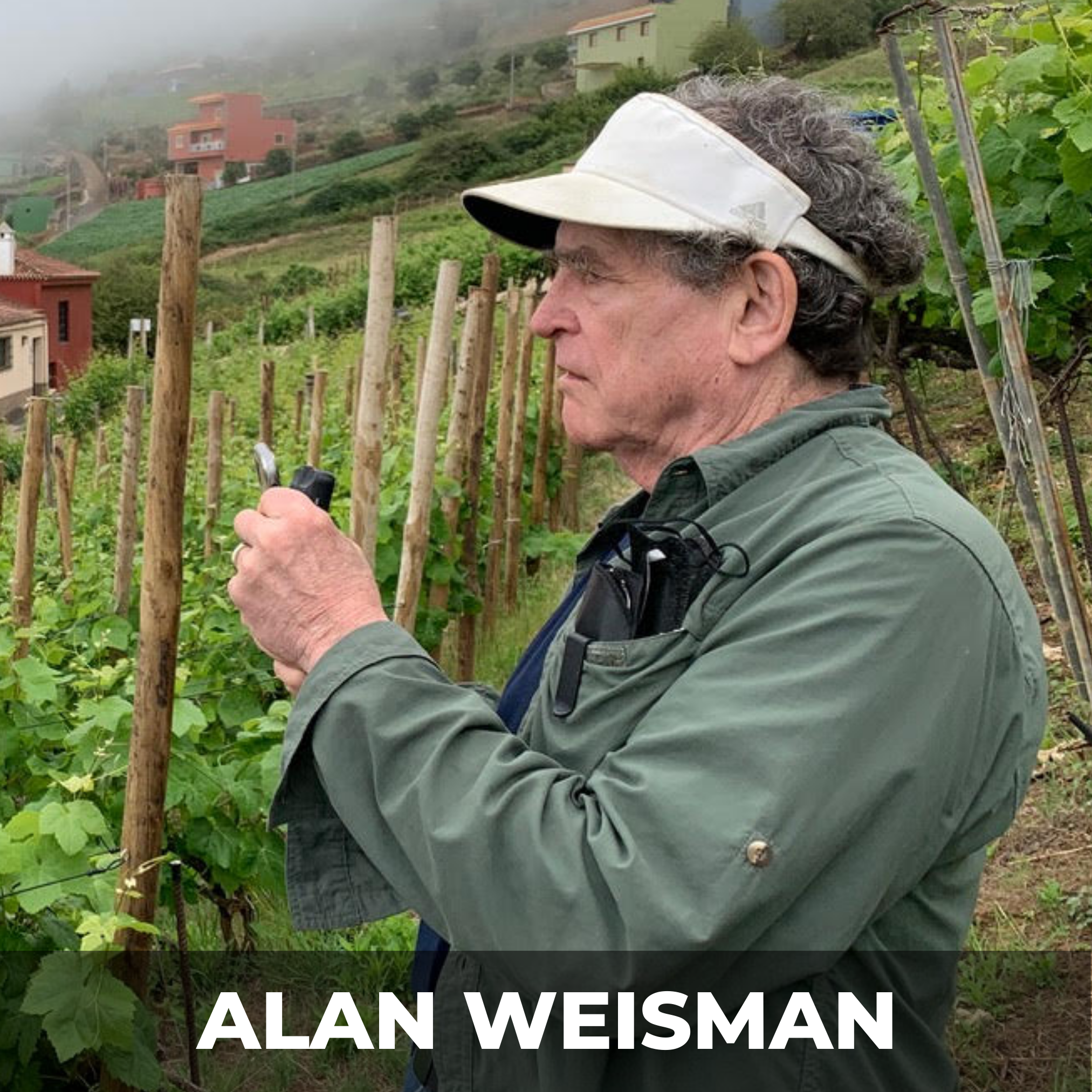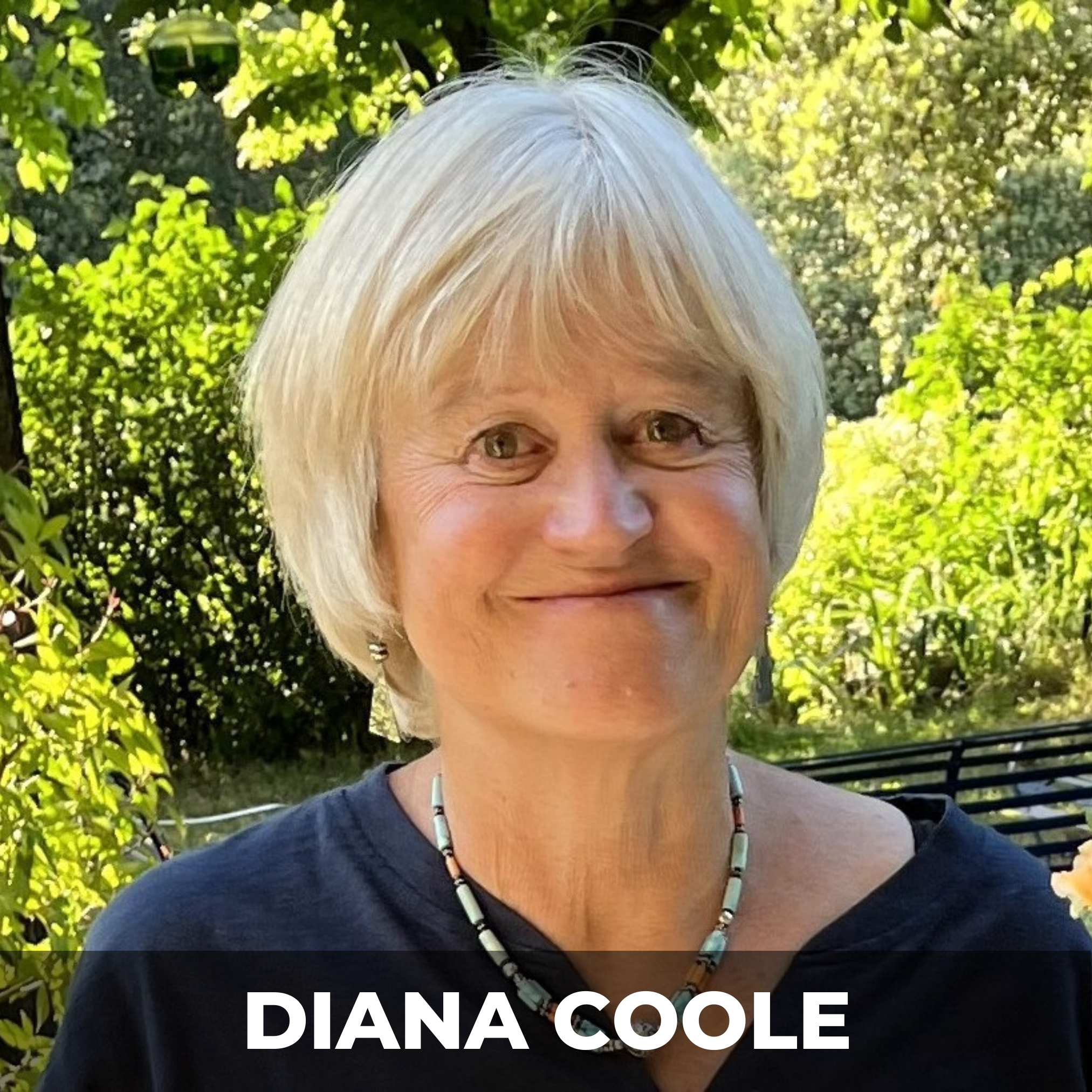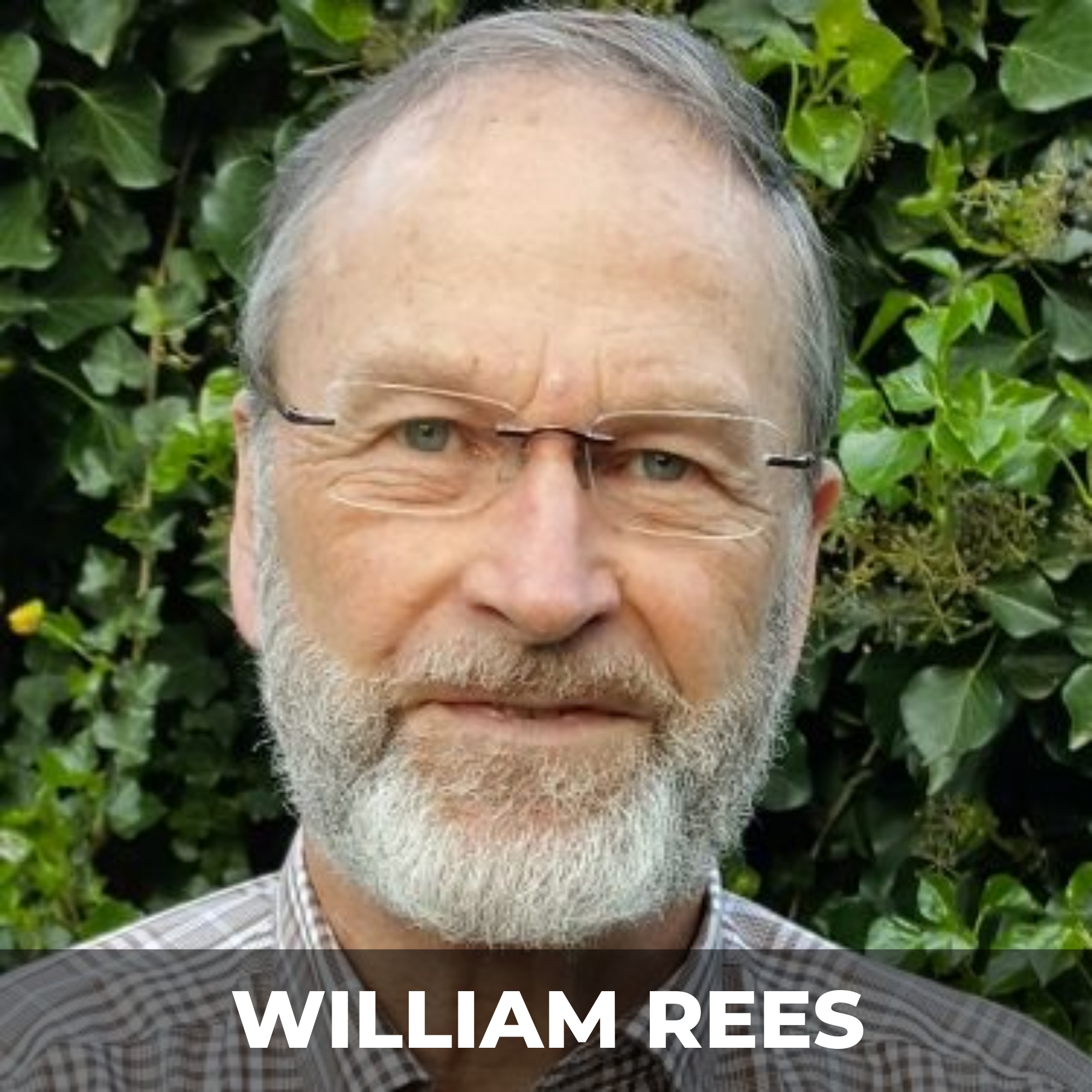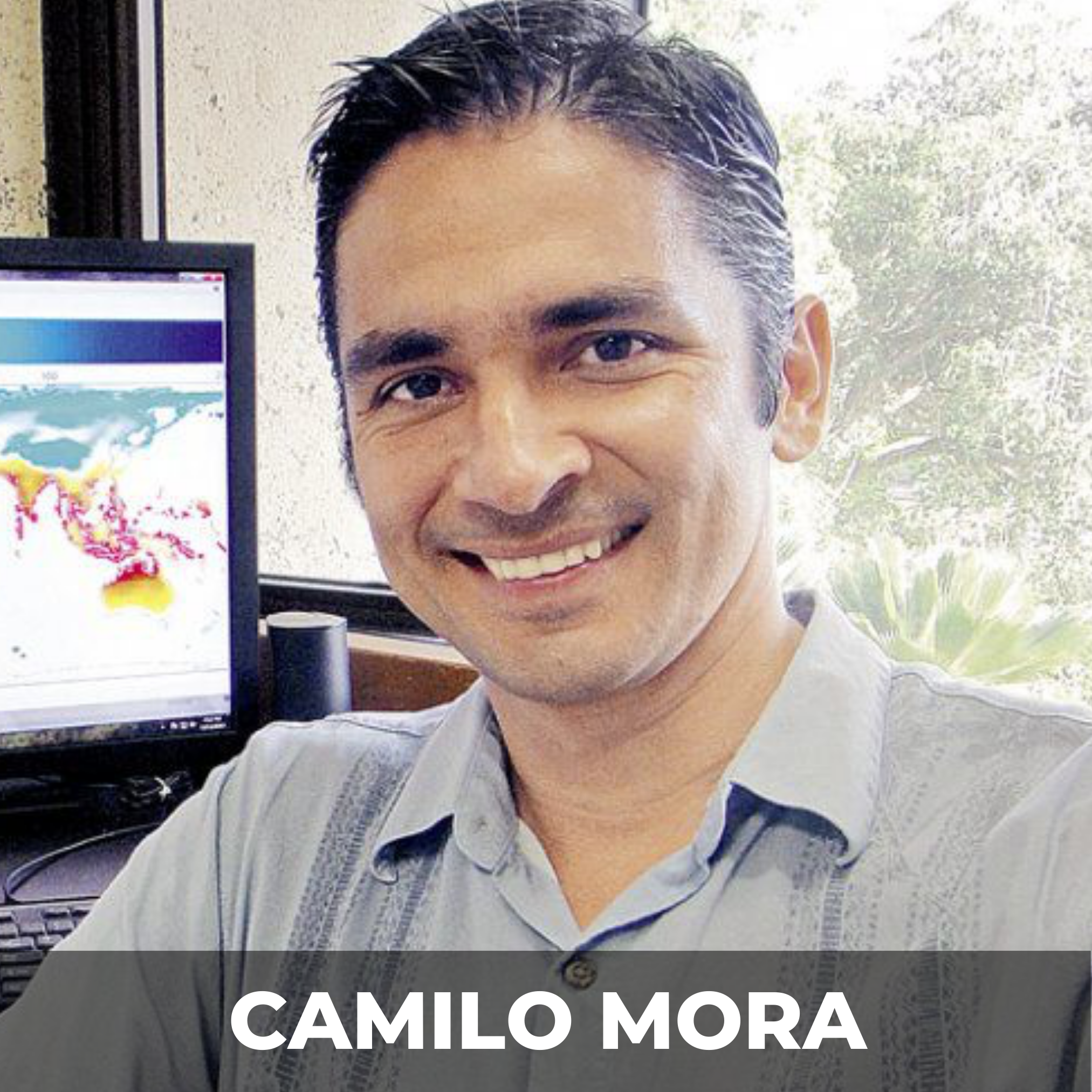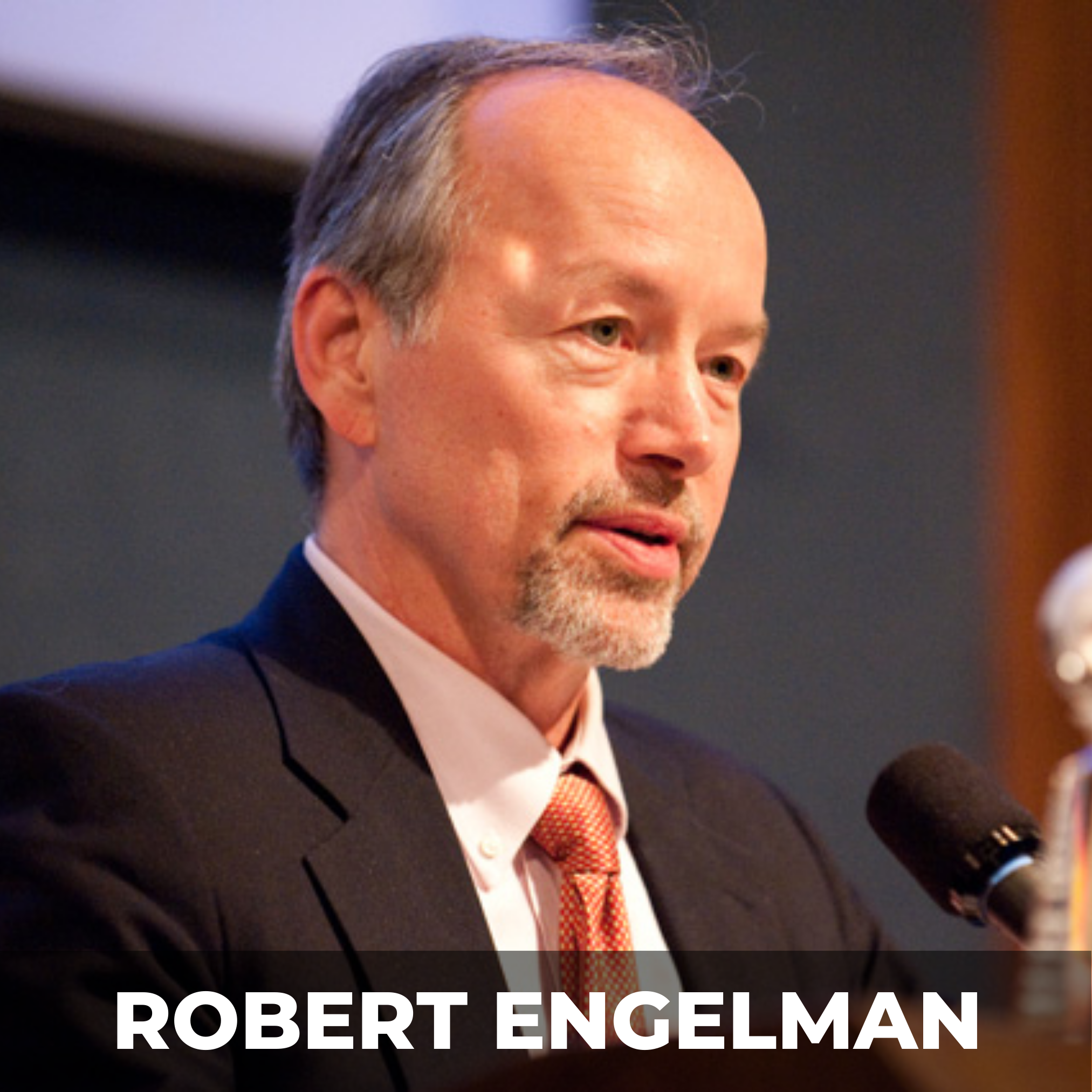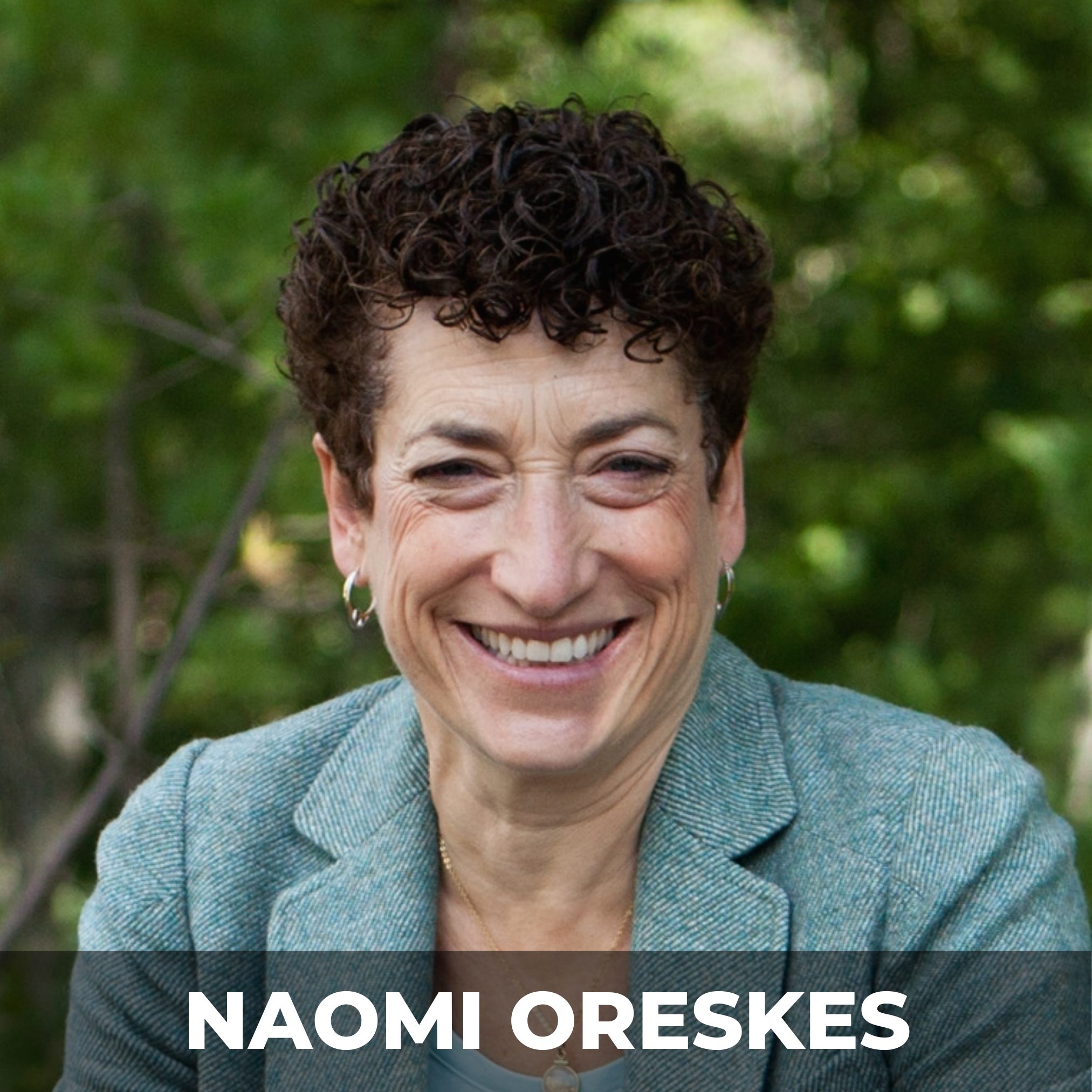Rome is Burning. The Time is Now.
Biodiversity scientist, collaborative team-builder, conflict-resolver, global change scientist and policy strategist, Dr. Phoebe Barnard is on a mission to bend the curve on population and consumption. With decades of experience working in South Africa and Namibia, and as the lead author of the World Scientists' Warnings Into Action: Local to Global paper, Phoebe discusses the importance of moving beyond dichotomous thinking and rallying together leaders from communities across faith, science, and activism to urgently take actions to protect our incredible spaceship Earth - with humility, love, and deep collaboration.
MENTIONED IN THIS EPISODE:
-
Phoebe Barnard 0:00
Population stabilization is an uncommon thing for many scientists to talk about. But it's really been the elephant in the room and it's received an unfair amount of silence. I think it's been perceived as something that is just not okay to talk about. But I'm a woman. I've been living in Africa most of my life. Most people there want to talk about it. Most women certainly want to talk about it. And in the northern hemisphere, it's also become an fortunately bogged down in fingerpointing. Is it population, is it hyper consumption? Well, it's both.
Alan Ware 0:41
Collaborative team buildee, conflict resolver, global change scientist, and policy strategist on a mission to bend the curve on population and consumption. Today we’ll be talking with someone who combine all those talents and more - all in the service of creating a wiser, kinder, humbler, and more life-supporting civilization - on this episode of the Overpopulation Podcast.
Nandita Bajaj 01:10
Welcome to the Overpopulation Podcast where we tirelessly make overshoot and overpopulation common knowledge. That's the first step in right-sizing the scale of our human footprint so that it is in balance with life on Earth, enabling all species to thrive. I'm Nandita Bajaj co-host and executive director of Population Balance.
Alan Ware 01:33
I’m Alan Ware, co-host of the podcast and researcher with Population Balance, an organization that educates about and offers solutions to address the impacts of human overpopulation and overconsumption on the planet people and animals. Today's guest, Phoebe Barnard, is a veteran scientist and policy strategist and a big picture thinker entranced by the small and exquisite details of biodiversity and humanity. Having spent thirty-four years of her early career working globally and in southern Africa, founding and leading national biodiversity and climate programs, she is now professor of Conservation and Global Change Ecology and Environmental Futures at the University of Washington and an associate of African Climate and Biodiversity Institutes at the University of Cape Town. She has been a board member of the Millennium Ecosystem Assessment and a National and Continental Negotiator for the Convention on Biological Diversity, keen to transform society across scales from households to global. Her day job is founding CEO of the Stable Planet Alliance, a global coalition on population and consumption, of which Population Balance is a founding partner. She's often found running and hiking on trails in the snowy cascade volcanoes of Washington State with her filmmaker husband and two adult daughters.
Nandita Bajaj 02:00
Phoebe, it's such a delight to have you here. Coincidentally, you and I met about nine months ago, both relatively new to the population scene - you as the new CEO of your new organization, Stable Planet Alliance, and I was just starting out at Population Balance as the new executive director. So it's really been wonderful getting to know you over the nine months, and we're thrilled to have you here.
Dr. Phoebe Barnard 02:21
I am delighted to be with you both this morning. Thank you. It's a huge honor. And yes, we are both newbies, I even more so than you, because I feel it's a significant step into a new field for me. But yes, Stable Planet Alliance has only technically been going since late October last year. So it's been extremely nice to work together a little bit so far. Thank you, Nandita. And thank you, Alan.
Nandita Bajaj 03:48
And we can launch right into your organization, Stable Planet Alliance. It's a broad global coalition of like-minded people, organizations, and networks working on population and consumption, health, conservation, women's empowerment, children's rights, education, leadership, and planetary boundaries. That's what we grabbed from your website. Can you discuss the motivation to start this project and also what you hope to achieve through this alliance?
Dr. Phoebe Barnard 04:20
The way you describe it, it sounds like quite a random grab bag. And I don't mean it to. The Stable Planet Alliance is intended to be a coalition of the willing, the determined, the focused, the brave - who wish to bend the curve on population and hyper-consumption. And knowing that many of us, like myself included, have been working in the biodiversity, national development, climate change arenas, realizing that the harder we work, the faster we feel like we're running on a treadmill and that events are overtaking us nonetheless. To be able to resolve those problems and make headway with all of those other issues, we have to tackle the two big - what I call multiplier threats - to everything else that we face in our civilization and on our planet and in our climate: population and hyper-consumption. You may remember that I've been working overseas, in mainly in southern Africa, but also at global levels for much of my life. Although I've been incredibly lucky to have wonderful opportunities, I felt increasingly aware that scientists had been sitting at the edge of the mainstream debate about our future, our common future, for way too long. And that we had to really stride right up to the center of the room and collaborate with other organizations to force a change in the way things were being run on our planet. So Stable Planet Alliance basically grew out of that determination, I suppose, to use the last ten or so years of my productive working life, to make a change collaboratively, with determination and focus, and a little bit of courage to face down one or two quite controversial issues.
Nandita Bajaj 06:18
Yes, that's such a great description of the work you're doing. And a common theme running through your life, as you mentioned, over the last thirty-four years, and even more, is collaboration from both your international collaborative projects to the local resilience projects. And it sounds like you've joined right there in your local region of Washington State. As you know, from what you've learned so far about Population Balance, we're also trying to create and sustain broad-based collaborations that can make a difference. What have you learned about how good collaborations happen and how we might all learn to increase the level of collaboration?
Dr. Phoebe Barnard 06:58
That's quite a good question, especially these days. I think I've found that it's really, really important to have the right balance between getting the right people on board and getting the willing people on board. The willing people are not always the right people. And the right people are not always the willing people. So it's a little bit of a talent to find those that are excited about change, and able to contribute new, fresh, diverse perspectives on how to bring that about. And here, in the context that we're operating in (population, planetary health, consumption, and justice), it's easy to find a lot of contrary narratives that really can be stumbling blocks, rather than avenues to progress. But even in my life as a biodiversity scientist, I found that convening people in a room, metaphorical or literal, and helping get them in a place where they could chart out different scenarios for the future and choose which future they wanted to be part of, and then help them create that future, was a really key approach to looking at a successful, collaborative team and a successful set of outcomes. Working nationally in Namibia, for example, on that country's first National Biodiversity Program, and then its National Climate Change Program. We use those kinds of approaches, and found that people that hadn't been able to talk to each other pretty quickly started working together pretty enthusiastically, because they realized they'd been missing something by sitting in their own little empires, having problems with each other. So I've enjoyed that. And I've learned a lot from those days.
Nandita Bajaj 08:52
I've had the privilege of being part of some of your more recent groups that you've been running both via email and virtually over Zoom, and I can attest to your incredible skill to bring together people with such a diversity of perspectives and skills. You've got modelers, you've got process thinkers, you've got behavior change agents, all working together, bringing in a diverse set of perspectives. And it's not always pretty to watch all of the different types of engagements emerging, but what I admire about you is just your ability to keep bringing it back to the big picture and pointing to our common goals. So yeah, well, you are the perfect person to be doing this job.
Dr. Phoebe Barnard 09:44
I don't know that I am, and frankly, sometimes it's more instinct and less skill. And I've had to make adjustments. It's not always easy, but I do believe in the force of a collaborative spirit and a certain amount of willpower to shape things. I think you're very good at that too.
Alan Ware 10:03
She is. So you've noticed the big problems we're facing on the planet are caused by both population and consumption. And we wholeheartedly agree. And you've also noted that the history of racism, misogyny, and cultural arrogance does not give us a free pass to be silent about the importance of population. So having worked in all the different cultures around the world that you have during your career, how do you go about having these conversations about population and consumption in culturally sensitive ways?
Dr. Phoebe Barnard 10:34
I think, first of all, it's interesting to me, having been an immigrant in a number of countries, both Canada and Sweden in the northern hemisphere, and Namibia and South Africa in the southern hemisphere, and of course, living in a post-apartheid society, as both Namibia and South Africa were at the time, forces one to be very, very aware of privilege, of skin color, of systemic structural inequities. So it's important to face those things down right away. And then, by doing so, I think in a very frank and vulnerable way, establishing your own personal perspectives and backgrounds in a way that enables people to make judgments about you - do they trust you? Do they not? And I think being vulnerable and acknowledging certain backgrounds in an honest way, is often a prerequisite for being able to have these discussions intensely. For a long time, I was a national negotiator at the UN, for the government of Namibia at the Convention on Biological Diversity. And, you know, it's something that in my childhood, I think, in most of our childhoods, we never really think of ourselves the way other people might see us. I never thought of my skin as being white. But when you are in a room full of people, and you're asked to represent the entire Africa group of nations in negotiations, and you have a white skin, that's both an enormous acknowledgement of trust and respect, but also it carries great responsibilities, You have to make super sure that your own individual assumptions or background do not overtly color anything that you say, but that you are being truly democratic and consultative deeply about all these issues. So I suppose there's no shortcut for the establishment of trust, and the getting to know each other individually in a vulnerable and honest way that sometimes involves uncomfortable discussions, but very rewarding discussions. I think that we're in this field, probably. I ain't seen nothing yet. I think that we're always learning how to hold these discussions. And there's been such fruitless finger pointing and bickering and argumentation about what's more important, in a way that allows people to just step away and say, "Oh, it's not my problem. It's the other person's problem." And the point of Stable Planet Alliance is really just to bring these organizations together, and help form this irresistible force, but also an unassailable force for change that enables people to say, "Okay, there were these discussions in the past that were tainted sometimes, not always, but too often, by cultural arrogance, and racism, and misogyny, and everything else. But this is now, and we are seeing the future of the end of civilization in the lifetime of our descendants, and are the children alive today and their children. Do we really feel that this is an appropriate time to remain paralyzed in an unhelpful set of taboos?" I don't think so. So I decided I'm willing to be the one that gets shot down by wading up to the center of the room again with all of us and say, "Okay, we can no longer afford this. Rome is burning, the time is now."
Alan Ware 14:32
Well, you're so well placed with your experience with creating trust and collaboration. Seeing that social trust is something that's fraying, not just in the Western world, but even in developing countries. We've got a crisis of social trust. And a lot of what it seems you have experience doing is building, trust being vulnerable. It sounds like you're able to do that in a way where they would personally trust you to represent them in negotiations. So-
Dr. Phoebe Barnard 15:02
Alan, you know, there are a lot of people that are better schooled in these issues than I. I learned these things sort of flying by the seat of my pants. There are a lot of things I still have to learn. And of course, every individual that you meet, you need to establish a new relationship with. And they and you need to learn to trust each other afresh. So whatever I've done in the past is only a way to, hopefully help me toughen my skin and gird my loins for the task ahead.
Alan Ware 15:34
Right.
Nandita Bajaj 15:35
You really are a great living example of what it requires to build that social trust that you're both speaking to is a level of deep psychological and self-reflective work on an ongoing basis. And just as you even said, an acknowledgement that we are all always learning and we're not coming in with a full package of skills, understanding, emotional quotient, and you know, all of the necessary things. But it's the willingness that you're expressing to constantly be vulnerable and be okay with not knowing that actually creates that space for trust. And I second Alan's comment that you're really well placed, not because of the skills necessarily alone, but also just your openness to discovering what has yet to be discovered.
Dr. Phoebe Barnard 16:28
Well, you know, it will be all of us. I'm the person that's pulling everyone together, but all of us will be striding out in front. And it remains to be seen how successful we are. But I believe that the tide is already turning, it's a good time for us to be stepping out, helping raise up the largely unheard voices of women around the world, and young people generally, around the world on these issues is crucial. The dialogue has been dominated for a long time by older people. And now I'm an older person myself. So I'm conscious of being able to use my background working with younger people to shift that dialogue. But you know, Nandita, you're a perfect partner in that. And I'm really excited about the discussions that we'll be having as early as this afternoon on that line.
Nandita Bajaj 17:23
Likewise. And you've also mentioned how working in South Africa and Namibia, the gains that have been made in social and economic development can be eroded by population growth, what kinds of problems did population growth, from what you saw, cause in countries in Africa that you've lived in/worked in?
Dr. Phoebe Barnard 17:46
Yeah, that's a rich and complex topic. But ultimately, I had a huge privilege of living in those two countries at crossroads of their own development. Namibia, at its emergence into independence from colonial rule from South Africa, and before that, Britain and Germany, and then South Africa, in its crossroads of post-apartheid democracy. And I think that especially in Namibia, but really both countries, it's an incredibly arid country, Namibia - driest country south of the Sahara. I was asked to come back from Sweden, where I'd been doing my PhD, to set up and lead the country's first National Biodiversity Program. And after I'd been in the job for about, I don't know, perhaps a month, the founding president of Namibia Sam Nujoma, made a speech in which he exhorted all Namibians to breed as much as possible, so that we could have a big population to drive a big economy that compete with other economies. And fortunately, I was still very young and tentative in those days, so I stayed out of the fray. But a whole bunch of my senior colleagues leapt in and said, "Really, that's not a good message. And here's why - we don't have the water, we don't have the technological economy, we don't have the service economy, we are still an economy at the very beginning of its transition. And the very worst thing that we could do is actually encourage people to breed." Let's put it this way, before I went to Sweden from Namibia, I was a lecturer at the University of Namibia and one of my jobs was to help the numeracy skills of mid-career professionals that would come in predominantly from schools around the country to do a degree. And some of the university classes, students rather, were high school and middle school principals who were really handicapped by very poor mathematics backgrounds. And so one of the first little exercises that we did was to learn to graph frequency data. And I decided, being a little bit brash here, to use as the example, surveying the students themselves about the family size - the number of children born to each of their mothers. And the range was from one to seventeen, with a bimodal distribution, and one of the modes, one of the peaks of that bimodal distribution was at a family size of between nine and eleven. So there were definitely large families in this very arid country that did not have any perennial rivers arising in its own territory. There were only ephemeral rivers, except for the border rivers that rose in Angola, and Lesotho running through South Africa. So that was a great vulnerability of the country. Seeing population overtaking the country's very progressive constitution made me think about the things that can undermine the hard work that we do. And I realized that was population, it was inappropriate development, and I would put the encouragement of high material consumption rather than broader wellbeing goals in that category. And the third issue that I saw undermining our best efforts for national development in Namibia was just corruption. Namibia it didn't have a massive issue with corruption, but it was plagued fairly early on by certain people who threatened to poison the whole social fabric, I suppose, particularly in government. So I realized that population, inappropriate development, including consumption and corruption, could easily thwart everybody's hard work.
Nandita Bajaj 21:45
Yeah. And I can see flavors of that in a lot of countries, including my birth country in India. I actually can pinpoint all three of them, especially when you say, you know, population, basically overtaking any kind of progressive gains that are being made.
Dr. Phoebe Barnard 22:03
Absolutely, I think India is experiencing that. But many countries are, and I would cite my own country of birth - the USA - predominantly in tha. Our former president used to refer to African countries in a very derogatory way that I am sure I don't need to repeat. But in fact, the US can learn a lot from these countries right now. And it's sad to see our own countries descending into tribalism and corruption and divisiveness.
Alan Ware 22:36
And did you also see in Namibia a global, extractive, multinational capitalism moving in little projects to extract wealth from Namibia for the sake of elites and multinationals?
Dr. Phoebe Barnard 22:49
Yeah, a little bit. We really faced it down at the beginning. And Namibia has a fantastic constitution that actually has a clause that requires sustainable natural resource use, requires the protection of biological diversity and essential ecosystem processes, and forbids the dumping of toxic waste in the desert.
Alan Ware 23:13
Wow.
Dr. Phoebe Barnard 23:13
And the last one was specifically aimed at multinational corporations and countries seeking to offload their problems on to Namibia. Because plenty of people thought that the desert is only useful for dumping other people's waste. So for a long time, we were able to face that down. I think the country now is experiencing quite a lot of problems. The Okavango Delta, which is fed through a river that runs through Northeastern Namibia, is under threat now through gas exploration. And there have been other, really pretty bad multinational corporate bids. A lot of corporations and a lot of countries think that small countries like Namibia, which had a population of fewer than two million people when I was there, over a space of, I think, 100,000 square kilometers - very low density of population. A lot of people thought that a country like that would be a pushover, and we'd roll over and you know, put all four paws in the air if you dangled multimillion dollar investment opportunity. We were pretty good at facing those down at the beginning. But I think countries can never get complacent about those problems, Alan.
Alan Ware 24:31
That's heartening to see what Namibia has been able to do, historically anyway.
Dr. Phoebe Barnard 24:36
Yeah, it's not perfect, but at least on paper, it's pretty good. It's got a good strong constitution and a good strong start, and that makes a difference.
Nandita Bajaj 24:45
So Phoebe, you've mentioned three things just now - population, consumption, and corruption - being at the heart of a lot of our social ills. And you mentioned population growth being a threat multiplier, which we are agree with wholeheartedly. And as you know at Population Balance, we've taken a position that pronatalism, which is, you know, the social pressures placed on people, especially women, to have children and large families is at the heart of our unchecked population growth. And pronatalism shows up in many different ways depending on the cultural context. In the US and Canada, it can look like government policies that provide tax incentives for child rearing, or popular culture that places parenthood, especially motherhood, on a pedestal. You spoke briefly about the pressures to procreate in Namibia and in South Africa. What do these cultural pressures look like in terms of pronatalist narratives? Are you seeing any kind of hopeful changes in terms of the willingness and ability of girls and women to push back against these patriarchal norms?
Dr. Phoebe Barnard 26:01
It's a subject that I always treat a little bit gingerly because I don't know enough about it. But my observations, I suppose, are that the sexual inequities of Africa, are kept in place largely by strong patriarchal assumptions. But I am hopeful women are pushing back quite a bit against it in some places, not in others. It's pretty fair to say that in most parts of the continent, everybody loves babies. Babies are seen as a gift from God and they are just gorgeous little bundles of joy. We know that in many places, there is an increasing understanding that many people are having more children than they can realistically afford. There's a big problem in both Namibia and South Africa, or at least, I would say a decade ago there was still, I'm less confident about how much it is now, of men sidestepping their paternal financial responsibilities. In both those countries, Namibia and South Africa, there has been a tendency to expect women to prove their fertility in their teens. A lot of my students had a child, or sometimes two, occasionally three children, that were being looked after by their mothers or their mothers-in-law while they studied, and that is a huge challenge for women. At the same time, particularly when I was a young Lecturer in Namibia, the HIV pandemic was really hitting women hard. Especially truck drivers would have multiple girlfriends along their truck routes, and HIV was just slicing women down. I lost several students in the short time that I was a lecturer there. And that was hard, of course, not only for the immediate family that, you know, had to sometimes just push the full-time care for a twenty-five year period onto elderly women especially. But it had huge, rippling economic and social consequences for the loss of those women. And especially, in my case, the last of those educated women who could have been great stars in the development of their country. So those were tough things. I am very hopeful when I look at people like Cecile B. Ndjebet who has just joined Stable Planet Alliance's board. She is a very strong, gender social ecologist, I guess for for lack of a easier shortcut to describe her, who is looking strongly at women's access to land in many countries in Africa still, if women leave their husband or if their husband dies, the in-laws can sweep in and not only take their land and their house, but their children. So there's a lot of progress that needs to be made. But I am hopeful that things are changing in many places, and that the ripple effects of those women's voices are having tangible impacts. I've just issued another invitation to a young South African gender sociologist, who I think will help strengthen our understanding of those issues at Stable Planet.
Nandita Bajaj 29:45
That's excellent.
Alan Ware 29:47
So restoring and regenerating the Earth is gaining in importance as a focus at the international level with the UN declaring the 2020s Decade of Ecosystem Restoration, and you've promoted ecosystem restoration throughout your career. What have you found is the balance between the goal of restoring land, or an ecosystem, and the goal of providing for long-term material sustenance of the local people?
Dr. Phoebe Barnard 30:12
I'm often heard saying that we need every tool in our toolbox, or perhaps every weapon in our arsenal, if you're inclined to those kind of metaphors, for restoring the biodiversity and carbon stocks of our planet, and the self-determination of the people that live on the land. I am always a proponent of conservation rather than restoration, which is never a perfect science, it's never a perfect process, it almost always leaves a depleted ecosystem, from a biodiversity point of view, from a carbon point of view, even if it sometimes improves the livelihoods aspect of people who live in those systems. So I would prefer that people don't cut down old growth forests in the first place. Once they have, and I'm living on a small third of an acre in Washington State now that used to be old growth forest, and I have stumps on my property of trees that were eight-hundred or more years old, before they were cut in the last century. And I keep those stumps there as my personal ghosts, I have the kind of spiritual relationship with them, because they are a stark reminder of the disasters that can happen with a profit-motivated economy. But, there are ways that restoration can really improve our overall planet. And the UN is absolutely right to have the decade UN Decade of Ecosystem Restoration. I would have loved for it to be a Century of Human Ecosystem Restoration that would have started several decades ago. But better late than never, so let's get on with it. I certainly have been very familiar with the South African restoration projects, which are big public works projects, and a big part of that country's economy. That are, they're definitely not perfect projects, but they are helping to restore water flow and wetlands and mountain ecosystems in catchments that are required for better human development, more sustainable development.
Alan Ware 32:41
Yeah, as you mentioned, it would be great if they had, if we can combine it with more ecosystem preservation. Because the the biodiversity and complexity of the initial ecosystem is very hard to recreate in any restoration, right?
Dr. Phoebe Barnard 32:56
You really can't, it's It's tragic. You know, you can get a structurally similar ecosystem, you can get a passably functional ecosystem, but you can never replace the more sensitive species, and sometimes the most essential ecosystem processes that are lost. Particularly with the way that forests are managed in North America, there's been a disaster unfolding, and we are now seeing the evidence of it through wildfires, bark beetle pathogens, and other invasive species. It's been a perfect storm of bad environmental management and we need to work hard to repair that. It's going to be hard with the mindsets and the economy that this continent still has.
Alan Ware 33:45
That seems part of the grief we have to live through is all the damage that was done much of it before we were even born, but that there's still enough to love out in every bioregion.
Dr. Phoebe Barnard 33:57
Oh, there's plenty to love. There's plenty to love. But you're right, it doesn't come without grief.
Alan Ware 34:04
So you're the lead author of The World Scientists Warning Into Action, a local to global paper - a kind of climate blueprint for action that was launched at the COP26 meeting. And your group took the six urgent areas of concern which you identified in the earlier 2019 World Scientists' Warning of a Climate Emergency paper. And those six areas were: energy, atmospheric pollutants, nature, food, population and economy, and you also added a seventh area of governance. And then you spelled out urgent actions for decision makers at six levels from local to global, on three different timelines from now to 2050 for each of these. There have been scientist warnings, other ones over the last few decades, the first, I think in 1992, but your new paper was explicitly prescriptive and action focused rather than simply read laying scientific findings. Can you give us a couple examples of what those local to global actions might look like?
Dr. Phoebe Barnard 35:07
Yeah, sure. And honestly, again, this is just a function of my getting increasingly stroppy as I get older, the failure of governments and society to get to grips with the challenges that we have. So I guess, let me talk about food systems and the economy. With food systems, everybody eats. It's such an intimate activity, as Nandita and others have noted, it's something that is, to some extent, under most everybody's control. There are plenty of people that are not in much of a choice-based social or economic situation. But certainly in the Western world, where a lot of the damage is being done by industrial food systems, and highly globalized food systems - that's where big, big changes can be made. So the six different scales that we spoke about are the household scale, community scale, city or town scale (or a kind of regional scale, and it could be called states or provinces or districts or regions), national scale, and then finally, the UN. And I think changes need to be made at all of these levels, and can be, already are well underway at virtually all of these levels on food systems in the West. There's a lot of change that needs to happen in North America, because I think it's fair to say, certainly of the US, a little bit less so of Canada - we're pretty backward still on some of these things. But the choice about what to eat, eating low on the food chain, eating only when you're hungry, eating locally, and not indulging in very much stuff that needs to be trucked in from somewhere, and then having cities and communities that can put in place incentives for allotments, community food gardens, rooftop gardens, food exchange programs, food waste redistribution schemes - all of those kinds of actions can be really incentivized at household, community, city, and even state or province levels. But ultimately, the food system is a function of a predatory and extractive economy, which has used globalization as a way to bring profits and perhaps to try and exchange profits among countries. But in my view, it's been unbalanced - a highly, highly destructive system. And so we need to disengage from that consciously. One of my favorite people is the author Vicki Robin, who wrote a book called Your Money or Your Life, and then recently wrote another book about the hand that feeds you. She's now in her seventies, and she happens to live near me in Washington, so I've been able to get to know her personally. But through her work, I think a lot of people in my region are engaging in local food thirty day, sixty day challenges to try and eat within a hundred mile or a thirty mile or thirty kilometer radius of your house. And even if you allow yourself a few, a few exceptions. For example, in the last month, I think I've had halloumi cheese, and Icelandic chocolate, which are my few real indulgences. But many of us have coffee, which cannot really be grown in my area. We need to start to be finding alternatives. International trade in food will continue. But this monstrous, voracious globalization system must stop. So food systems are definitely an area of big change that is already underway in some areas, but needs to accelerate. And in addition to just dietary choices, we need to pay significant attention to regenerative farming practices, and especially soil and mycorrhizal fungi. And so we need to make sure that areas that have been depleted can be actively restored. And so that's an area where, even if it's not the full original diversity, we need to inoculate soils, because many have become completely dead. So food systems is one and then perhaps I'll just briefly, because I've really touched on the economy, I would say that the economy can also be dealt with across levels to some scale I suppose. But ultimately, it's systemic change from the top down, that will be needed to enable most of the necessary change. I'm very involved in the transition network of local community cohesion, both in the US as a whole and in my local area. And when I lived in South Africa, I actually started a transition group with another guy. But it was a little bit before its time, we didn't have time to really invest enough in it. So that didn't go for long. But the transition movement is trying to pilot different ways of doing local economies in ways that makes sense. And to re-localize a lot of our lifestyles in ways that are more rewarding, more regenerative, and much more sustainable.
Nandita Bajaj 40:52
Yeah, these are such excellent changes that you are suggesting both at the local and the system level. And I especially wanted to hone in on the industrial food production system that you touched on. As you know, our very destructive food production system ties in directly to a very anthropocentric worldview that we live from, which is that we see the more than human world, nature and the non-human animals as resources for ourselves. And to that effect, you've also done a lot of work in your career caring for the more than human world, through your work in protecting and promoting biodiversity in places around the planet. Have you seen some on the ground shifts in consciousness happen while you're working with community groups around these issues?
Dr. Phoebe Barnard 41:51
Yeah, absolutely. For sure. Least so in the USA, but I think things are changing even here. In southern Africa, I was really a biodiversity scientist who was working in governments in strategic planning, national development, and public policy. And I had one foot in academia. So I tried to juggle both the scientific research and the public policy. But in those countries, I found that nobody really needs to explain the word biodiversity, or the concept anyway, to local people. Their lives are very directly dependent on species and ecosystems, and nobody needs to tell them that they should value those things - they do. It's implicit in a lot of their traditional laws and dowry systems and traditional practices of climate adaptation. And the Western world can learn an awful lot from the way people run things and, and understand things. And from Indigenous communities, generally. This is a time for deep learning and deep listening by the dominant white culture, to the cultures that they have subjugated. And it's much easier for that to happen in some places than others. But that process has started. I do think that I've seen a great set of successes in biodiversity in southern Africa generally, and Africa at the continental level. At the same time, we've seen really heartbreaking failures, a lot of those heartbreaking failures have been through the globalized economy that has driven poaching, for example, poaching has has much less been a problem at the local subsistence level, and much more a problem where there is a, you know, a foreign trade profit motive involved. So it's always a very mixed bag. But yes, I do think that certainly people all over the planet have belatedly started to realize that we are dependent on this life support system that this Spaceship Earth, which is, you know, a phrase that none of us have used for decades, it's kind of fallen out of favor. But now that Elon Musk is, you know, throwing his weight around so much I thought perhaps the term needs to be resuscitated. This Spaceship Earth is providing everything that we know. And we have acted as though we can survive somewhere else, even somewhere as inhospitable and distant and bleak as Mars. So a lot of people are waking up about that. Is it too late? In many cases for many local areas? Yes. But I think with a great resurgence of, I suppose, a regenerative economy, and a more humble spiritual awakening of people around the world. And that's not something that scientists talk much about. But I would say it's essential. And as a result of the Scientists Warnings Into Action paper blueprints that we wrote, I've increasingly become involved in actions to help bring the world's faith community leaders together on this issue, to hopefully join together with the world scientists community, and the global civil society, student activist community, to force change through the biomass, and integrity and gravitas, I suppose, of all those communities acting together.
Nandita Bajaj 45:45
I think that's so wonderful, especially what you're doing with regards to bringing together faith communities, because they have such immense influence over shifting behavioral norms. And also, for a lot of faith communities, there is a built-in reverence for the planet that doesn't always show up in the kind of protective ways that we are trying for people to espouse, but we can appeal to that care for something bigger than ourselves in those communities.
Dr. Phoebe Barnard 46:18
I think so. And I want to clarify, I'm not personally bringing the world faith leaders together, the Pope has recently brought world faith leaders together, as you will know, in early October. But I am now part of a process that is intended to help those faith leaders engage up to a billion and a half of their members around the world in the next decade, to work on a kind of global societal transformation. And I think that's a very exciting emergence. And I want to help bring those three communities of scientists, faith leaders, and citizen activists together. As somebody who might describe myself as a bit of a spiritual atheist who just runs in the mountains rather than going to church, I thought it was interesting that I was being approached a lot by local and sometimes regional and global faith communities to speak about climate change and biodiversity. And I have always realized that there's an enormous power in the way faith communities approach this dialogue. People are far more motivated by faith and love and longing and nostalgia than they are by facts and figures. So I've always been aware of that as a scientist, and it's a natural step forward, I guess, for me personally, to engage at that level.
Nandita Bajaj 47:46
Yeah, there's a few things coming up for me. One is it's a very strategic partnership, but also a very heart-centered partnership, because of your proclivity towards reverence for the planet, without any, you know, religious inclinations, without necessarily having a faith or an institution tied to it. Whatever we can do to find overlapping values so we can actually all get to work and do what's the most necessary work is to protect our planet.
Dr. Phoebe Barnard 48:17
You know, it has to be said, there have been few things more inclined to cause division over historical time of our civilization than religion. But we have to do better, I think we can do better. And most people who have not regarded themselves as belonging to an organized religion, have some element of spiritual reverence that they can call upon in these times. And now's the time.
Nandita Bajaj 48:46
I want to say, "Amen," but...
Dr. Phoebe Barnard 48:48
I love it. Or, as they said in Russia, or during the time at the revolution, "Huzzah!"
Alan Ware 48:59
So historically, a lot of the overpopulation discussion has been dominated by men. I think we all agree that needs to change. And you've been making great strides and getting more women in the sustainable population conversation through the GirlPlanet.Earth platform. And the population conversations Global Women's Facebook group that you started. Could you tell listeners more about these initiatives and how they might be able to participate?
Dr. Phoebe Barnard 49:27
Sure, sure. Thank you for the question. I think they're both based on a very simple premise that a man Chris Tucker helped me first articulate in my own brain, and that is that just starting the conversation is a big part of radical, transformative social change. I'm putting words in Chris Tucker's mouth that I shouldn't, they're my words, but fundamentally, Chris Tucker, who you guys have interviewed beautifully. He wrote the book Planet of Three Billion, and we spoke about how the Scientists' Warning of the Climate Emergency paper back in 2019 had mentioned the population issue in a way that most scientific papers had not. So Chris said to me at that time, "You know, I'd be really happy if we could just get the conversation going." And I thought, well, I can do that. None of my co-authors are going to do that, because with all due respect to my co-authors on the World Scientists' Warning of a Climate Emergency, who are all amazing men, but they're all white men in academia. None of them had worked in a developing country context, none of them had been mentoring women all over the world. So I thought, well, I can do that. Let me get stuck into that. So we started the Population Conversations Facebook group. And then we decided to start a global platform for women to just nail their colors to the mast I suppose, by submitting a profile, telling their personal story, or their professional observations, or their angst about the health of our planet, and the role of population and consumption and personal choice, or, depending on their inclination, culture, sexual politics, public policy, the economy, the constraints on them, the peer pressure to have children, any of that. We just gave them a platform where they could talk. As long as they were broadly within topic, we encourage them to tell their story. And they could say whatever they wanted to say. So I feel that women's voices have not been heard up until quite recently on these issues. And I'm really excited about the growth of female leadership in this area, not least present company. And it's it's really important, I think, to acknowledge that it's not just about women's leadership, in my view, it's more broadly about what we might call feminine leadership, for lack of a better term. And by that, I mean, the leadership that can come from any gender that is collaborative in essence, that is future looking, and public benefit or collective benefit oriented, that seeks to build consensus and resolve conflict rather than compete. And I've been very lucky, I have to say, to work with a whole bunch of inspiring leaders, and many of them have been men. So I want to acknowledge them for that. I'm a woman who loves men, in all senses of the word. But I do believe that now is the time for women's leadership, and especially feminine leadership, to really carry the dialogue going forward. And men can continue to have their conversations. But enabling women by stepping back and letting women lead right now is an important task. So through GirlPlanet.Earth, and through the initiatives that we will be collaboratively developing in Stable Planet Alliance, I believe that this is the time for strong women's voices to help encourage young women, older women, intergenerational lessons to all help shape the narrative and the public policy of the future on population and consumption.
Alan Ware 53:31
Well, that's interesting what you said Phoebe, because I've certainly seen social research showing that women can be more collaborative, inclusive, and legacy oriented. So a more feminine leadership style would embody all of those qualities. And we've seen some of the female prime ministers in places like New Zealand, Scotland, Iceland, and Finland, are at the forefront of redefining economic growth by using these alternative indicators of well being other than GDP growth. So that's another way in which women are bringing something very new to the table that can hopefully get us off of this, away from this infinite growth, Ponzi scheme, nature-destroying system that we've created.
Dr. Phoebe Barnard 54:15
Yes. I've been very, very lucky to work with an extraordinary mentor in this space, the leader of the Homeward Bound projects of women's leadership for sustainability with a STEM background, and that is a woman called Fabian Dattner in Australia. And she said, and now I often say, "What kind of leadership got us to this state?" I would say, "What kind of abysmal leadership got us to this mess in the first place? And what kind of leadership will take us forward successfully into the future?" But having that experience of working with a whole cohort of a thousand women leaders in STEM globally, not just leading in STEM, but stepping up to the leadership tables of the world. That's been a wonderful experience. You know, this is our moment now, because Rome is burning. And if we're not going to be bold in our actions, then who will be bold? And if we're not going to do it now, then when are we going to do it? It's almost too late now. And in some cases, it is already too late. But there's already, there's instead an enormous amount of work that we can do which will make the future much more adaptable, much less miserable, much more manageable for future generations, other species, and many farm animals, if we make big, bold, transformative changes now.
Nandita Bajaj 55:51
Wonderful. This was such an excellent interview, Phoebe, thank you so much for taking the time to join us today. And thank you immensely for the mammoth task that you have undertaken to lead Stable Planet Alliance. We are so thrilled to be part of your organization, and we are so thrilled that you are at the helm of this organization trying to bring such incredible system change and personal change to this movement. So thank you for being with us.
Dr. Phoebe Barnard 56:23
Well, we're going to be doing it together. Thank you both for the time and commitment and inspiration you've given me. I really am grateful. It's lovely to talk with you both.
Alan Ware 56:33
Thank you Phoebe, it's been great having you. That was great. Phoebe's - she's got such a wide range of experiences and she's carried out these on the ground collaborations in so many diverse geographic and cultural context. And she's that rare person who seems to combine the scientific expertise with big-picture wisdom, and she's got the personal skills to help bring people together.
Nandita Bajaj 56:56
Absolutely. And I love any opportunity I can get to spend time with Phoebe. I always walk away with a new nugget of wisdom. We are really lucky to be working so closely together with Stable Planet Alliance under Phoebe's masterful leadership in such a complex arena. And now to wrap up this episode. Alan, I know that you have a really wonderful and topical quote for us.
Alan Ware 57:19
Yes, this is from Thich Nhat Hanh, a Vietnamese Zen Buddhist monk, poet, and peace activist who died at the age of ninety-five on Saturday, January 22. "When greed and pride overtake our basic survival needs, the result is always violence and unnecessary devastation. We know that whenever one species develops too rapidly, exceeding its natural limit, there is great loss and damage, and the lives of other species are endangered. For equilibrium to be restored, causes and conditions naturally arise to bring about the destruction and annihilation of that species. Often these causes and conditions originate from within the destructive species itself. We have learned that when we perpetrate violence toward our own and other species, we are violent toward ourselves. When we know how to protect all beings, we are protecting ourselves." Well, that's it for this edition of the Overpopulation Podcast. Visit population balance.org to learn more. And if you feel inspired by our work, please consider supporting us using the donate button. You can also write to us using the contact form on our site populationbalance.org or by emailing us at podcast at populationbalance.org.
Nandita Bajaj 58:37
Until next time, I'm Nandita Bajaj reminding you all that we can make a dent in this movement by choosing small footprint families, whatever family means to you.


